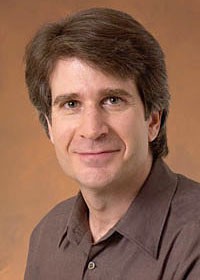
11:30 am to 12:30 pm
Event Location: GHC 2109
Bio: Richard Volpe is Manager of the Mobility and Robotic Systems Section of NASA’s Jet Propulsion Laboratory, California Institute of Technology. The section is a team of over 90 robotics engineers doing research and spaceflight implementation of robotic systems for Roving, Digging, Ballooning, Drilling, and other modes of in-situ planetary exploration. In the last decade, Richard has served on JPL’s Science and Technology Management Committee, been a member of the 2007 Phoenix Mars Lander Robotic Arm Team, and managed Mars Regional Mobility and Subsurface Access technology development for the Mars Program. Also, he is currently leading the Space Robotics Technical Committee for IEEE Robotics and Automation Society. He holds a Ph.D. in Applied Physics from Carnegie Mellon University.
Abstract: The Robotics Section of the Jet Propulsion Laboratory (JPL), California Institute of Technology, is engaged in a full spectrum of flight project and research activities. This talk will provide an overview of the efforts, and discuss the recent accomplishments and future directions of them. Specific activities will be highlighted based on their level of accomplishment, impact on the community, maturity, or novelty. Robotics activities on flight projects are a small, but significant subset of the full effort for these large missions. Currently, JPL roboticists are continuing to participate in the operation of the Mars Exploration Rover (MER), Opportunity, even while operation of the Mars Science Laboratory Rover (MSL), Curiosity, has just begun. Additionally, development of the manipulation subsystem for the 2016 InSight Mars Lander is just beginning. Complementing this set of flight project activities, is a diverse set of research efforts for NASA and other U.S. Government agencies. These span a number of technical disciplines including computer vision, software engineering, modeling, simulation, manipulation, mobility, and mechanical design. Recent results in mobility and manipulation will be discussed, as well as future directions motivated by NASA and other sponsor objectives.
